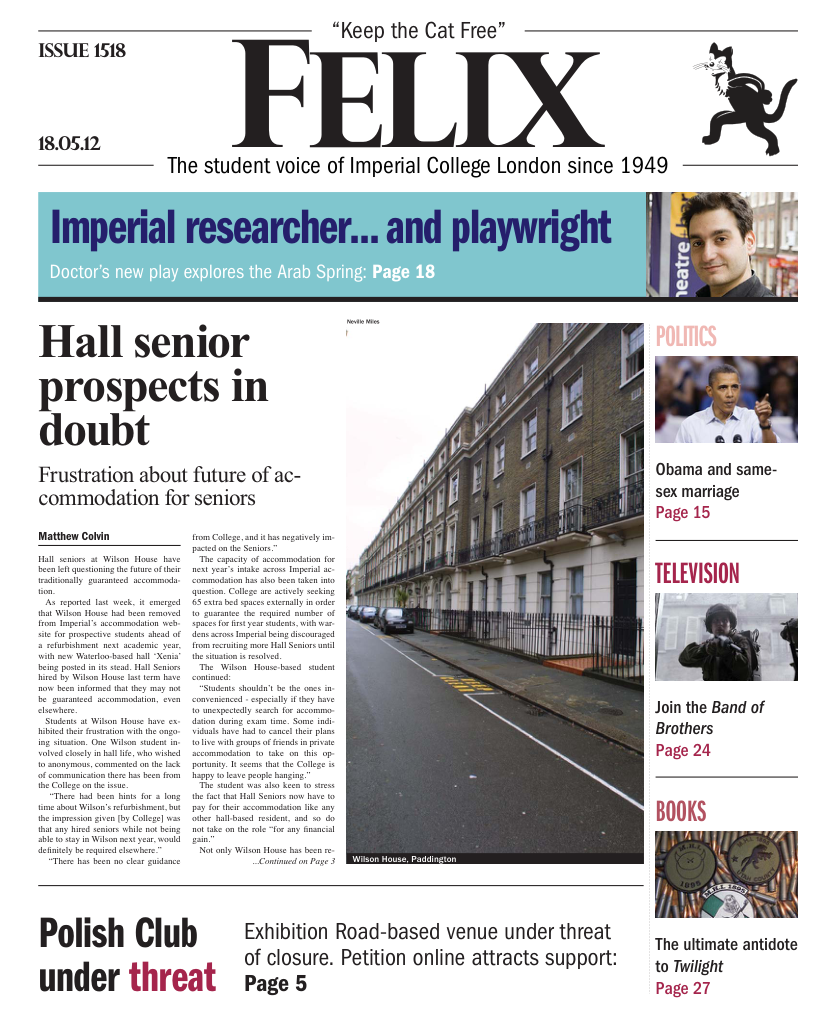Think about it, are you nomophobic?
That's right, fear of being without your mobile

Has it ever occurred to you just how much of our modern lives are lived via screens? I am sitting here writing this on my laptop, which has been switched on ever since I decided to watch a cheeky episode of Green Wing over breakfast. My mobile phone has been within a two metre radius of my person all day. My housemates and I are considering popping to the cinema later. No doubt the lectures I will attend this week will be conducted via a projector screen. Even if I wanted to escape, I would no doubt be bombarded with screens and monitors in supermarkets, tube stations, and even just walking innocently down the street.
My question is whether this is a bad thing? Should we be worried about our ever-increasing reliance on this virtual world? When a seven-year old has a tantrum on the tube because she has been forced to wait three seconds too long for her top-of-the-range mp3 player, I think there may be something wrong.
Don’t get me wrong, modern technology has the potential to enrich our lives in countless ways. Google Earth is about to launch a street view type simulation of the Great Barrier Reef, allowing you to dive down and ‘virtually’ explore to depths of up to a hundred metres, all from the comfort of your own home. The wealth of scientific knowledge on the internet is endless, meaning that most of us at Imperial probably use the library about 10% as often as we access online resources. Restaurants are replacing waitresses with iPads. You can shop online, deliver flowers to relatives in Australia, stay connected with childhood friends who would otherwise be complete strangers… it’s actually hard to think of any aspect of life that some sort of screen can’t help you with.
I was recently without a phone... once I was out and about I did feel a certain sense of liberation that technophobes and hippies are always banging on about
But are we becoming too reliant on this kind of thing? Perhaps even to the extent that we are actually afraid if we are out of contact with our virtual lives. A recent article published in the Telegraph (who am I kidding, I read the Evening Standard version) states that two thirds of the UK population suffer from this fear, one aspect of which has been catchily termed nomophobia (no mobile phobia, officially defined as fear of losing or being without your mobile phone). If you delve further into the results, 77% of 18-24 year olds (that’s us) are nomophobic; and women are a little more afraid than men, however this is reportedly only because men tend to have a second spare phone knocking about. The problem has become so terribly grave that an advice website has been launched to help people cope with the extreme stress and anxiety caused by this condition. Even though the site is extremely basic and low-budget, I’m almost entirely sure that it’s not in fact a piss-take. Instead of giving pointers on getting these people some seriously needed perspective into their lives, the ‘Top Tips’ section on nomophobia.com offers “some immediate protection from nomophobia by [avoiding] a range of the most common reasons why people lose mobile phone contact”.
I was in fact recently in the unfortunate situation of being without a phone for a few weeks. My poor faithful brick of a phone, so sturdy and reliable up until that point, lost a fight with a pint of Fosters and never recovered. Now for the first few days I was indeed in a mild state of shock and feeling horrendously disconnected from the world, but after a while my sense of panic began to diminish. I started arranging to meet people at specific times and places, instead of the usual “call me when you get there”. I spent more time on Facebook, as a result, sure, but once I was out and about I did feel a certain sense of the liberation that technophobes and hippies are always banging on about. Instead of thinking about my phone all the time, whether I had a message or a notification, I was actually listening to the people I was with. Instead of burying my nose in my mobile while on the bus, I would read a book on the way home, or just take time to look around or out of the window. It was on one of these occasions that I realised that a total of five people out of the nine in the back seat of the bus were glued to iPhones, even a pensioner who looked like she could barely see. And I wondered: are these people actually doing something meaningful on those phones? Or are they just filling time by browsing pointless websites or messaging people unnecessarily? Because now that I have finally got round to replacing my phone, those are the things I’ve gone back to doing on my boring bus rides home. And although I’m feeling better connected, I kind of hope that I will never become a nomophobic.





